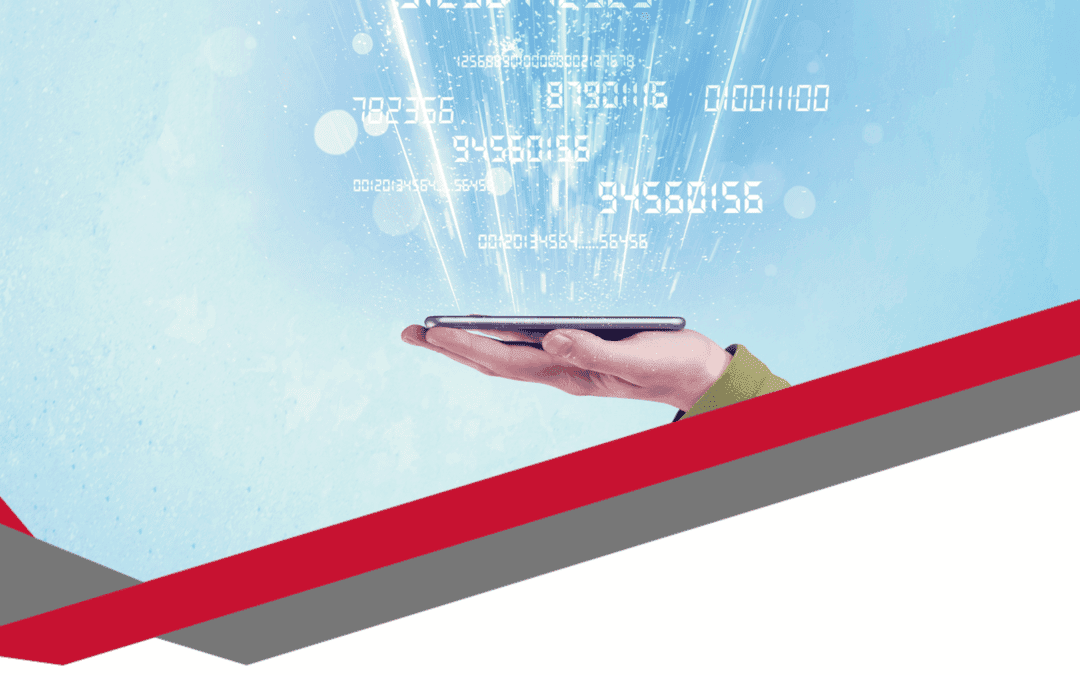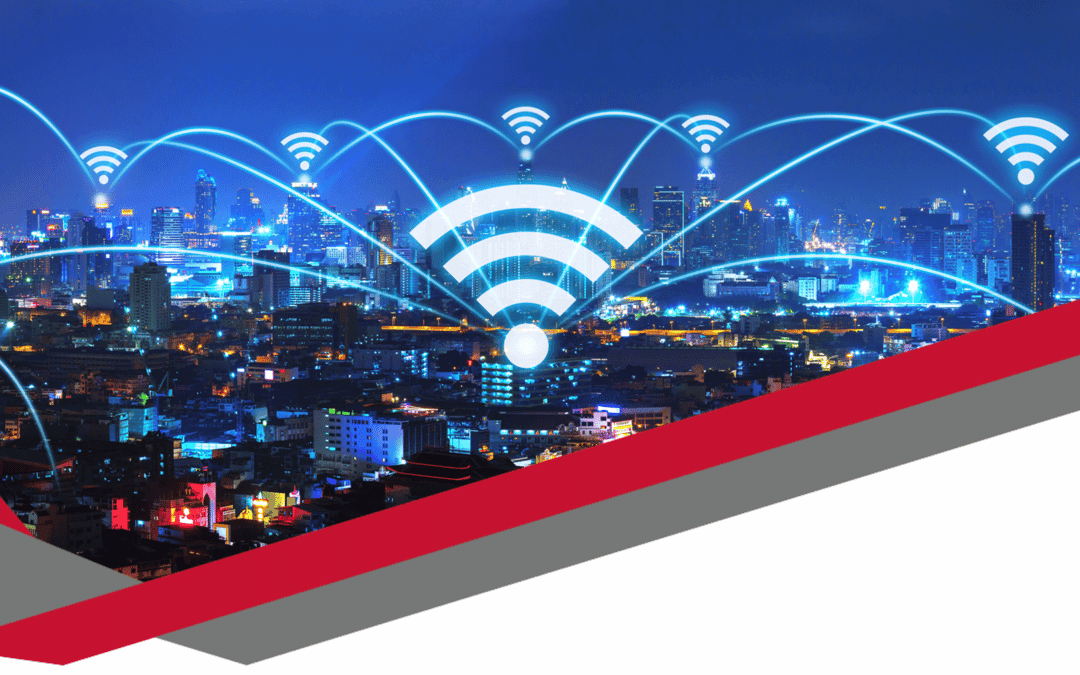
by nikbarlow | 4 Jul 2023 | Updates
In today’s fast-paced business landscape, it’s essential to stay ahead of the curve and streamline your operations for maximum efficiency. Embracing the right technology can significantly impact your company’s productivity and overall success. Boost Your Business Efficiency with Microsoft 365. Digicomm 360 IT and Telecoms understand this need for a powerful and reliable IT solution, which is why we proudly present Microsoft 365—an all-in-one cloud-based productivity suite designed to supercharge your business. In this blog post, we will explore the key features and benefits of Microsoft 365 and how Digicomm 360 can help transform your organisation.
Collaborate Seamlessly
Microsoft 365 provides businesses with a robust set of collaboration tools that promote teamwork and enable seamless communication. With applications such as Microsoft Teams, employees can effortlessly collaborate on projects, share files, conduct virtual meetings, and stay connected, regardless of their location. Digicomm 360 can assist your organisation in setting up Microsoft Teams, ensuring a smooth transition to a more collaborative and productive work environment.
Enhanced Productivity & Boost Your Business Efficiency with Microsoft 365
Time is a valuable resource for any business. Microsoft 365 offers a suite of applications, including Microsoft Word, Excel, PowerPoint, and Outlook, that are familiar and widely used across industries. With these powerful tools at your disposal, employees can work more efficiently, create professional documents, analyse data, and deliver captivating presentations. Digicomm 360 can help you integrate Microsoft 365 seamlessly into your existing workflow, ensuring a boost in productivity without disrupting your operations.
Secure and Reliable
Data security is a top priority for businesses today. Microsoft 365 provides advanced security features, including encryption, data loss prevention, and multi-factor authentication, to safeguard your valuable information. Digicomm 360’s expertise in IT and telecoms ensures that your organisation’s data remains protected at all times, implementing the necessary security measures and offering ongoing support to keep your business secure.
Scalability and Flexibility
As your business grows, so do your technology needs. Microsoft 365 offers flexible subscription plans that allow you to scale your IT infrastructure according to your requirements. Whether you have ten employees or a thousand, Digicomm 360 can tailor the Microsoft 365 solution to meet your organisation’s specific needs, ensuring a cost-effective and future-proof IT strategy.
Enhanced Mobility
In today’s mobile-driven world, the ability to work from anywhere is crucial. Microsoft 365 empowers your workforce with cloud-based access to files, applications, and emails, allowing employees to be productive on the go. Digicomm 360 can help your organisation embrace the mobility features of Microsoft 365, ensuring seamless access across devices and maximising your team’s productivity, no matter where they are.
In an era where businesses need to stay agile and technologically advanced, Digicomm 360 IT and Telecoms are proud to offer Microsoft 365 as the ultimate IT solution for organisations of all sizes. By leveraging the power of Microsoft 365, businesses can enhance collaboration, increase productivity, ensure data security, and enjoy the flexibility needed to thrive in a digital world.
Already using Microsoft Office 2013?
Support for Microsoft Office 2013 ended on the 11th April 2023, and you may be exposed to security risks. Though Office apps will continue to work, security updates will stop. Upgrading to Microsoft 365 is recommended.
Avoid putting your files and devices at risk by purchasing Microsoft 365, a 12-month subscription that includes Microsoft’s latest productivity software—powerful productivity apps like Word, Excel, and PowerPoint with premium features, advanced security to protect data and devices, and extra cloud storage to help save files with ease.
Contact Digicomm 360 today to discover how Microsoft 365 can revolutionise your business and drive it towards greater success.
01204 201 201

by nikbarlow | 23 Jun 2023 | Updates
In today’s fast-paced digital world, effective communication is paramount for businesses to thrive. To meet this need, Digicomm360 IT and Telecoms present their groundbreaking Communication Hub—a fully integrated Customer Relationship Management (CRM) system designed to manage every enquiry, regardless of its source. Streamline your communications with the Communication Hub, you can effortlessly communicate with anyone, anywhere, and on any device, empowering your business to reach new heights.
Let’s explore the remarkable features and benefits of this innovative system…
Fully Integrated Customer Relationship Management (CRM) System
The Communication Hub integrates seamlessly with many existing systems, ensuring that no customer enquiry falls through the cracks. By consolidating communication channels, such as Calls, Emails, WebChat, WhatsApp, Facebook, SMS, Instagram, Messenger, and many more, within the CRM, you gain a comprehensive view of customer interactions, enabling more personalised and efficient service. Not to mention saving you countless hours checking multiple platforms!
Handle Every Form of Communication
Say goodbye to juggling multiple platforms and hello to centralised communication management. The Communication Hub allows you to handle various communication channels from a single location. Whether it’s responding to social media messages, replying to text messages, or answering calls, you can conveniently manage all interactions within your CRM.
Everything You Need and More
The Communication Hub offers a wide range of essential business features to enhance your communication capabilities. From instant messaging to voice and video calls, this system has you covered. Enjoy the convenience of a unified communication platform that caters to your every need, providing a comprehensive solution for efficient customer engagement.
Flexibility at Your Fingertips
With the Communication Hub, communication knows no boundaries. Whether you’re at the office, on the go, or working remotely, you can communicate from anywhere and using any device. This flexibility empowers your team to stay connected, collaborate effectively, and deliver exceptional service, regardless of their location.
Cost-Effective Solution
Digicomm360 understands the importance of cost-effectiveness. The Communication Hub enables you to improve your service delivery without breaking the bank. With highly flexible bundles, you can customise your system to match your evolving requirements. As your business grows, the Communication Hub grows with you, accommodating your expanding needs while remaining cost-effective.
Simplify Training Efforts
Implementing new systems often comes with the challenge of training employees. However, with the Communication Hub’s user-friendly interface and intuitive design, the learning curve is significantly reduced. Your team can quickly adapt to this seamless communication solution, allowing them to focus on delivering exceptional customer experiences.
Agile Working Made Easy
In today’s dynamic work environment, agile working is crucial for staying competitive. The Communication Hub empowers your team to switch seamlessly to agile working practices. Working from anywhere, at any time, becomes a reality, ensuring that your business stays connected, productive, and responsive to customer needs.
Compatible with Microsoft Teams
If your business relies on Microsoft Teams for collaboration and communication, the Communication Hub seamlessly integrates with this powerful platform. Utilise the combined power of the Communication Hub and Microsoft Teams to streamline your communication channels and enhance team productivity.
Stay Ahead of Your Competitors
The cloud revolution is already underway, and your competitors are embracing it. By adopting the Communication Hub, you join the ranks of forward-thinking businesses that are leveraging the cloud to transform their communications. Stay ahead of the game and seize the advantages offered by this cutting-edge system.
The Digicomm360 IT and Telecoms Communication Hub revolutionise the way businesses manage their communications. With its fully integrated CRM system, support for various communication channels, flexibility, cost-effectiveness, and compatibility with Microsoft Teams, the Communication Hub empowers your business to communicate effectively and efficiently. Embrace this innovative solution, enhance your customer relationships, and propel your business to new heights in today’s competitive landscape.
Don’t wait – start reaping the benefits of the Communication Hub today!
01204 201 201

by nikbarlow | 1 Jun 2023 | Updates
In today’s fast-paced world, effective communication is essential for personal and professional success. Whether you’re working in a call centre, conducting business meetings, or simply enjoying hands-free communication, telephony headsets have become an indispensable tool. These versatile devices have revolutionised the way we communicate, providing convenience, comfort, and superior audio quality. Exploring the evolution of Telephony Headsets in your organisation is essential, let’s guide you on your journey to the best headsets.
Let’s delve into the world of telephony headsets, exploring their features, benefits, and their evolution throughout history…
A Brief History of Headsets
The concept of headsets can be traced back to the early 20th century when inventors and engineers began exploring ways to improve audio communication. In 1910, Nathaniel Baldwin, a Utah-based engineer, created one of the first successful pairs of audio headsets. These early headsets were primarily used by telephone operators to improve audio quality and enable hands-free communication.
From Wired to Wireless Headsets…
Early Developments
In the early days, headsets were primarily wired, with a single cord connecting the headphones and microphone to the telephone or communication device. They were commonly used in call centres and military applications.
Introduction of Bluetooth
The advent of Bluetooth technology in the late 1990s revolutionised the telephony headset industry. Bluetooth headsets offered wireless connectivity, allowing users to communicate with mobile phones, computers, and other devices without the restrictions of physical cables. This advancement opened up new possibilities for mobility and convenience.
Modern Wireless Headsets
Today, wireless telephony headsets come in various forms, including Bluetooth, DECT (Digital Enhanced Cordless Telecommunications), and RF (Radio Frequency) technologies. These headsets offer improved range, audio quality, and battery life, making them ideal for busy professionals, gamers, and individuals seeking flexibility in their communication.
Features and Technology
Noise Cancellation: Many telephony headsets are equipped with active noise cancellation technology, which helps eliminate background noise and distractions, ensuring crystal-clear audio for both the wearer and the recipient.
Microphone Quality: Headsets with high-quality microphones ensure optimal voice transmission, allowing clear and natural-sounding conversations without any distortion or echo.
Comfort and Ergonomics: Headsets are designed for prolonged use, incorporating features such as adjustable headbands, cushioned ear cups, and lightweight materials to provide maximum comfort during extended wear.
Connectivity Options: Headsets now offer multiple connectivity options, including wired connections for traditional telephone systems, USB for computers, and wireless options for mobile devices and VoIP applications.
Benefits and Applications
Improved Productivity: Telephony headsets enable multitasking, allowing professionals to simultaneously communicate and perform other tasks. Whether it’s taking customer calls, participating in conference calls, or dictating notes, headsets free up your hands, boosting productivity.
Enhanced Call Quality: The advanced audio technology in telephony headsets ensures superior sound quality, reducing miscommunications and enhancing the overall clarity of conversations.
Mobility and Flexibility: Wireless headsets provide freedom of movement, enabling users to walk around the office or perform tasks while staying connected. This is particularly beneficial for customer service representatives or professionals who need to be mobile.
Health and Safety: Using telephony headsets reduces the strain on the neck and shoulders associated with cradling a phone between the ear and shoulder. This helps prevent discomfort and potential long-term health issues caused by poor posture during phone conversations.
Choosing the Right Telephony Headset
Consider the Purpose: Determine the primary use of the headset, whether it’s for professional work, gaming, or personal calls. Different models offer features optimised for specific applications.
Comfort and Fit
Look for adjustable headbands, cushioned ear cups, and lightweight designs to ensure a comfortable fit, especially for extended use.
Connectivity Options
Decide between wired or wireless headsets based on your preference and requirements. Wireless headsets offer more flexibility but may require charging or have connectivity limitations.
Audio Quality and Noise Cancellation
Check the specifications to ensure high-quality audio and active noise cancellation features, particularly if you work in a noisy environment.
Telephony headsets have come a long way since their inception, evolving from wired devices to sophisticated wireless solutions. Their convenience, superior audio quality, and hands-free capabilities make them an essential tool in a wide range of professional and personal settings. By investing in a high-quality telephony headset that suits your needs, you can significantly enhance communication efficiency, productivity, and overall comfort during conversations.
Embrace the power of telephony headsets and experience a new level of communication convenience in today’s interconnected world…
Speak to an Expert Today 01204 201 201

by nikbarlow | 29 May 2023 | Resources, Updates
In today’s rapidly evolving technological landscape, Artificial Intelligence (AI) stands as a groundbreaking concept that has captured the imagination of both scientists and ordinary individuals alike. This transformative technology has the potential to reshape industries, revolutionise the way we live and work, and unlock new realms of possibility. In this blog post, we will delve into the depths of AI, exploring its definition, key components, practical applications, ethical considerations, and the future implications it holds for humanity. Artificial Intelligence is revolutionising the world very quickly, don’t get left behind, read all about it. Be in the know!
Defining AI and Its Key Components
Artificial Intelligence refers to the simulation of human intelligence in machines, enabling them to perform tasks that typically require human cognition. The key components of AI include machine learning, natural language processing, computer vision, and robotics. Machine learning allows systems to learn and improve from experience without explicit programming, while natural language processing enables machines to understand and interact with human language. Computer vision empowers machines to interpret visual information, while robotics incorporates physical devices capable of performing complex actions.
Practical Applications of AI
AI has found its way into numerous sectors, impacting various industries positively. In healthcare, AI assists in early disease detection, diagnosis, and personalised treatment plans. It helps optimise transportation systems by analysing traffic patterns and reducing congestion. In the financial sector, AI algorithms identify potential fraudulent activities, analyse market trends, and offer personalised financial advice. AI is also transforming customer service through chatbots, providing round-the-clock support.
In the field of education, AI-powered tools facilitate personalised learning experiences, adapting to individual needs and preferences. AI-driven virtual assistants like Siri and Alexa have become integral parts of our daily lives, simplifying tasks and managing smart home devices. Additionally, AI contributes to environmental sustainability by optimising energy consumption, aiding climate modelling, and managing waste disposal.
Ethical Considerations
As AI becomes more pervasive, ethical considerations become paramount. The development and deployment of AI systems should prioritise transparency, accountability, and fairness. There must be safeguards against bias, discrimination, and the invasion of privacy. Data protection and security are critical to ensure the responsible use of AI, especially when dealing with personal information.
Another concern is the potential displacement of jobs due to automation. While AI can streamline processes and improve efficiency, it is crucial to foster reskilling and upskilling initiatives to help individuals adapt to the changing job market.
Future Implications
The future implications of AI are both exciting and thought-provoking. As technology progresses, AI has the potential to augment human capabilities, leading to unprecedented advancements in science, medicine, and exploration. From autonomous vehicles and drones to advanced robotic systems, AI will continue to enhance productivity and improve our quality of life.
However, with these advancements come potential risks. Ensuring AI remains aligned with human values and objectives will be crucial. Ethical frameworks and policies must be developed to guide AI research, development, and deployment. Collaboration between governments, organisations, and academia is essential to address potential challenges and maximise the benefits of AI.
Challenges and Limitations
Despite its remarkable potential, AI still faces certain challenges and limitations. One of the primary concerns is the lack of transparency in AI algorithms. Deep learning models, for instance, can be highly complex and difficult to interpret, making it challenging to understand their decision-making processes. This opacity can hinder trust and raise questions about accountability.
Another limitation is the need for vast amounts of quality data to train AI systems effectively. Obtaining and preparing such data can be a time-consuming and resource-intensive task. Additionally, bias in datasets can lead to biased outcomes, perpetuating societal inequalities. Efforts are being made to address these issues through data ethics and rigorous data collection practices.
The Future of AI
Looking ahead, the future of AI appears incredibly promising. Advancements in AI research and technology will continue to propel innovation and drive societal transformation. Increased computing power, coupled with improved algorithms, will enable AI systems to process larger datasets and perform complex tasks with even greater accuracy.
One area expected to witness significant growth is AI in the Internet of Things (IoT). The integration of AI with IoT devices will create intelligent ecosystems where objects communicate, analyse data, and make informed decisions. This synergy will enhance efficiency, convenience, and automation in various aspects of daily life.
Another exciting frontier is the development of explainable AI. Researchers are actively exploring ways to make AI algorithms more transparent and interpretable, enabling users to understand how decisions are made. Explainable AI will help build trust and facilitate its adoption in critical domains such as healthcare and finance.
AI ethics will play a pivotal role in shaping the future of AI
As AI becomes increasingly integrated into society, the need for ethical frameworks, regulations, and policies will grow. Collaboration between interdisciplinary fields like computer science, philosophy, and social sciences will be essential to address ethical dilemmas and ensure that AI aligns with human values.
Artificial Intelligence has already proven to be a transformative force in our world. Its potential to revolutionise industries, optimise processes, and enhance decision-making is unparalleled. As we navigate the path forward, it is vital to strike a balance between technological advancement and ethical considerations. By promoting responsible development, fostering transparency, and prioritising the well-being of humanity, we can harness the full potential of AI and create a future where humans and machines thrive in harmony.
Are you worried? Speak to an expert today, we can help get you ready… 01204 201 201

by nikbarlow | 12 May 2023 | Resources, Updates
The world of telecommunications is abuzz with the advent of 5G technology. With promises of lightning-fast speeds, ultra-low latency, and massive connectivity, 5G is set to revolutionise how we live, work, and communicate. Let’s delve into the intricacies of 5G technology, its potential applications across various industries, and the transformative impact it is expected to have on our daily lives. In this blog we will be exploring the power of 5G technology, giving you an understanding and describing the possibilities.
Understanding 5G Technology
5G, or the fifth generation of wireless technology, is the next evolutionary step in telecommunications. It represents a significant leap forward from its predecessor, 4G LTE, in terms of speed, capacity, and connectivity. While 4G focused primarily on providing fast internet access on smartphones, 5G aims to connect everything around us, including smartphones, IoT devices, autonomous vehicles, and more.
Unleashing Lightning-Fast Speeds
One of the most compelling features of 5G is its incredible speed. With download speeds projected to reach up to 10 gigabits per second, 5G networks will facilitate near-instantaneous data transfer, allowing users to download large files, stream high-definition videos, and engage in immersive augmented and virtual reality experiences seamlessly. This speed revolution will transform industries such as gaming, entertainment, and healthcare, enabling real-time collaboration, remote surgeries, and immersive entertainment experiences.
Redefining Latency and Reliability
Low latency is another key advantage of 5G. Latency refers to the time it takes for data to travel from its source to its destination. With 5G, latency is expected to be reduced to as low as a few milliseconds, virtually eliminating delays. This improvement is critical for applications that demand near-instantaneous responses, such as autonomous vehicles, remote control systems, and augmented reality gaming.
5G networks offer enhanced reliability and stability, ensuring consistent connectivity even in crowded areas or during high network usage periods.
Enabling Massive Device Connectivity
5G is designed to connect an unprecedented number of devices simultaneously. This capability is essential for the Internet of Things (IoT) ecosystem, where billions of interconnected devices communicate with each other. With 5G’s increased network capacity, smart cities, smart homes, industrial automation, and remote monitoring systems will thrive. From smart energy grids and connected transportation networks to intelligent healthcare systems and efficient supply chains, 5G will pave the way for a fully interconnected world.
Transforming Industries
The impact of 5G technology extends far beyond improved consumer experiences. It has the potential to revolutionise industries across the board. In healthcare, 5G can enable telemedicine, remote patient monitoring, and real-time access to medical records, fostering personalised and accessible healthcare services. Industries like manufacturing and logistics can leverage 5G’s low latency and high reliability for precision automation, remote operations, and efficient supply chain management.
The entertainment industry will witness a paradigm shift with the advent of immersive virtual and augmented reality experiences powered by 5G. Autonomous vehicles will benefit from 5G’s ultra-low latency, allowing vehicles to communicate with each other and their surroundings, enhancing safety and efficiency on our roads.
The Possibilities are Boundless
As 5G technology continues to roll out globally, the possibilities it presents are truly boundless. From super-fast speeds and minimal latency to the ability to connect billions of devices, 5G is set to revolutionise various sectors, unlocking new opportunities and transforming the way we live, work, and communicate. With its potential to enable advancements in healthcare, entertainment, transportation, and more, the future powered by 5G looks incredibly promising. As the infrastructure continues to be deployed and devices become 5G-enabled, we can expect a wave of innovation and new applications that will reshape entire industries.
However, it’s important to note that the widespread adoption of 5G will require significant investments in infrastructure, including the deployment of new towers and small cells. Additionally, the compatibility of devices and the availability of 5G networks in all regions will be crucial for its success.
Working in Collaboration
Governments, telecom companies, and technology providers are collaborating to ensure a smooth transition to 5G. They are working on spectrum allocation, regulatory frameworks, and partnerships to accelerate the deployment and maximise the benefits of this transformative technology.
Digicomm aims to keep you posted and advised; every step of the way!
Security and Privacy Concerns
While 5G brings forth numerous opportunities, it also raises some considerations, such as security and privacy concerns. As the number of connected devices increases, ensuring robust security measures and protecting sensitive data becomes paramount. Collaboration between industry stakeholders, cybersecurity experts, and regulatory bodies is vital to address these challenges effectively.
Don’t worry, Digicomm has your security and privacy in hand; every step of the way!
The future is 5G, and it holds the potential to reshape our world like never before.
So, get ready to embrace a new era of connectivity and prepare to witness the remarkable changes that 5G technology will bring to our lives.
Speak to an Expert Today! 01204 201 201


















